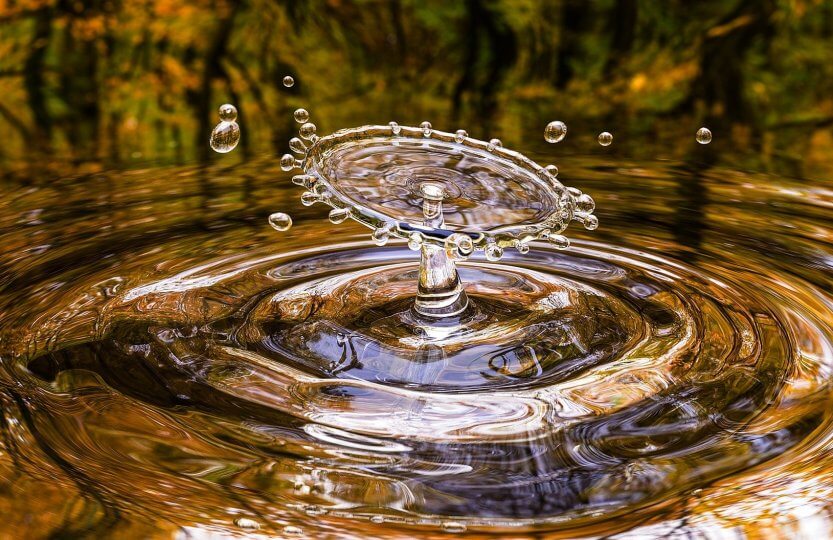In the words of American anthropologist Loren Eiseley, “If there is magic on this planet, it is contained in water.” Without water, there would not be life on this planet – that means no trees, nor fruits, no vast oceans, nor stunning waterfalls, no us… Simply put, there wouldn’t be Earth. Water is a necessity, a basic right. Water, our global common good, in all its shapes and phases, across land and sea, was the topic of the 2021 Edition of the Potsdam Summer School.
This summer, I took part in the Potsdam Summer School (PSS). This science school was cooperatively organized by the Alfred Wegener Institute, Helmholtz Centre for Polar and Marine Research (AWI), the Helmholtz-Centre Potsdam – GFZ German Research Centre for Geosciences, the Institute for Advanced Sustainability Studies (IASS), the Potsdam Institute for Climate Impact Research (PIK), and the University of Potsdam in partnership with Geo.X and the City of Potsdam. With the Hydrosphere at its core, the eight day long programme covered climate change, the role of the cryosphere, water as a hazard, the interaction between water, land and humans, hydrological modelling, and oceans, as well as economy, management, governance, and stakeholder engagement.
Virtually united
This year was the first time that the PSS occurred in an online format due to the restrictions caused by the COVID-19 pandemic. Nevertheless, I have to say that the PSS was a wonderful experience. One could tell that the whole structure of the summer school was carefully planned to provide all the participants with the best experience possible. And they surely succeeded!
Personally, I was impressed when I logged in for the first on the SCOOCS platform. There, we had the lectures (already available for us two weeks prior to the event!), the weekly schedule, networking tables, participants profile, and study cases. We had to prepare ourselves beforehand by watching the lectures, reading suggested materials, and making our questions for the discussion sessions. The 2021 edition of the school occurred from August 9th to August 20th.
The eight day event kicked-off with a warm welcome from Prof. Dr. Ortwin Renn, scientific director of the IASS. This was followed by an interactive session with Dr. Thomas Bruhn, where we were put in break-out rooms and met our fellow colleagues to talk about ourselves, our backgrounds, and motivations. The afternoon brought a talk by Prof. Dr. Johan Rockström regarding water within planetary boundaries in light of the most recent released IPCC report. We got to have the first meeting of our working groups, to which we were assigned prior to the event.
I was assigned to the working group about modelling hydrology. Within our working group, we had small lectures which nurtured the discussions in break-out rooms and in the plenary. We also had the opportunity to present our own work related to the study case that we submitted as part of our preparation for the school. This allowed us a place to share our projects, ideas, and different realities, as well as to receive valuable feedback, insights, and suggestions that we could try to implement to further improve our research. At the working groups, we also had the chance to get to know our colleagues further and develop a presentation to be given in the plenary in the last of the school.
I always was looking forward to the beginning of another day of the summer school. The first moment would always be the welcome and 15-minute interactive session, as well as a moment of reflection within ourselves. After connecting to the others, we began a discussion of the talks. Finally, we joined our working groups. I particularly liked how they structured the programme, the topics covered and how they were presented in light of current research and new technologies. This included bringing awareness to climate change, natural hazards, food-water-energy-ecosystem nexus, international cooperation, and water governance. Another highlight was the importance of the Sustainable Development Goals, how they interact and how they are grounded in four SDGs that are particularly important: SDG 6 (Clean water and sanitation), SDG 13 (Climate action), SDG 14 (Life below water), and SDG 15 (Life on land).
I feel very grateful for the opportunity to participate in the Potsdam Summer School, for the new knowledge, exchange of information and experience, as well as new insights on current research and even self-discovery. I would like to show my appreciation for everyone that made this summer school possible, and particularly for the organisation team that was always very present, friendly, and helpful. A special shout out to Angela Borowski (IASS) who has always been kind and welcoming to all of us! Thank you!
There is so much to share about the PSS that a short blog post cannot cover. But you can visit their website (https://potsdam-summer-school.org/ ) and get to know more about the program, the wonderful speakers, and participants of this 2021 PSS Edition. It was a pity that we could not meet in Potsdam for this amazing event, but I myself cannot wait to visit this incredible city! Finally, if you are looking to expand your horizons, have access to current research and networking, I can only recommend this summer school. So, be attentive for the application process that should start in the beginning of next year, good luck, and maybe I will even see you there in 2022(?)!










great work thank you